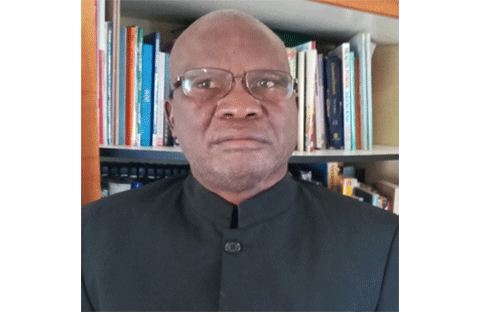It is no longer a secret that Namibians are heading to the polls on 27 November this year, and have undergone such exercise many times. Still, the tempo changes slightly, depending on the election and the national interests at stake during the campaigns.
During these campaigns, some political parties often become deeply polarised, leading to a lack of collaboration and compromise regarding national interests as the focus might be on individual party interests.
When parties focus on obstructing each other’s agendas during campaigns rather than working towards common goals, misinformation occurs, which adversely affects the electorate after the elections.
This leads to a situation where the electorate may feel deceived, especially when the parties fail to deliver on their promise.
The citizens in the long run may become disillusioned, and as a result voter apathy sets in the process. It is a common practice that political leaders may engage in spreading misinformation or using divisive rhetoric to rally their base.
This can distort public perception of critical issues and undermine trust in institutions, making it difficult for voters to form informed opinions. This short-sightedness can lead to neglect of vital issues that require sustained attention. During campaign times, when party loyalty supersedes the commitment to democratic principles, it can lead to actions that undermine the rule of law and democratic institutions.
This includes attempts to manipulate electoral processes, or weaken checks and balances. Disillusionment and partisan politics can lead to decreased voter turnout and engagement. When enlightened citizens feel that their candidates are more concerned with party loyalty than serving their interests by delivering services, they may become apathetic, further entrenching mistrust in the political system.
It is usually the election campaign trail that leaves much to be desired. Of course, the main purpose of any election campaign is to win large, but it is the intensity of the programme which is always not in line with national interests. Just through the election campaigns, in November, another type of language will be used when taunting other parties. The other parties will be labelled and called all types of names ranging from imperialists, traitors, ishenge and even hibernators. This is the time when some areas will be declared as ‘no-go areas,’ despite the fact that Namibia is a nation, and as a democracy should nurture a culture of tolerance.
It is usually strange that some political leaders support such behaviour, instead of condemning it. In some cases, there will be arguments that elections were rigged and stolen, and demand either a recount or calling for another election. Surely, for 34 years of nationhood, Namibians should be exercising maturity, patience and tolerance in all situations during the election period as they are building their young nation.
It should be the national interests which should loom large during any election, and not an individual political party. Many political leaders have been promising the voters ‘heaven on earth’ during elections in and elections out, yet fruition has been at its minimum. One thing political leaders should understand is that ‘all people cannot be fooled all the time,’ as there is time for every season. And with technological advancement, whatever is promised is likely to be rewound for everyone to listen to.
Furthermore, the slogans should be relevant on the political market for parties to get prominence as the new generation needs bread on their tables, as they can no longer watch and see the political leaders keep on adjusting the sizes of their belts. During election campaigns, one hardly hears how the country should be governed concerning national interests, and how it will relate with its neighbours.
Neither is there any mention of the deplorable and underperforming education system’s reconstruction and reformation to make it self-reliant. What is being seen and heard are party slogans which are recycled many times over, yet the rural poor and economically disadvantaged keep on reciting them without contextualisation. During these campaigns, no politician dared and seriously mentioned that all Namibians are taxpayers, who should benefit from their money. But the politicians always keep on threatening the voters not to build them schools, hospitals, even tarring their roads, if they don’t vote them into power.
What many politicians fail to understand is that they are losing voters by denying people the services they desperately need. By punishing and denying voters, these necessities may harden the electorate and come to dislike the system. Whether people voted for the opposition, it is the obligation of the government to offer those services as per Article 95(e) of the Constitution which states, “that every citizen has a right to fair and reasonable access to public facilities and services in accordance with the law”.
In all honesty, all political parties should make this clause their preamble before they start their political campaigns in order to enlighten their members and other nationals in the country to make informed decisions.
The tendency to prioritise party politics over national interests poses challenges that can undermine democratic governance, erode public trust, and hinder effective policymaking. Encouraging bipartisan collaboration and fostering a political culture that values national interests above party loyalty is essential for addressing the complex challenges faced by societies today. Engaging citizens, promoting transparency and encouraging civic participation can help to counteract these tendencies, and restore faith in the political process.
*Prof. Makala Lilemba is an academician, author, diplomat, motivational leader, researcher and scholar.


